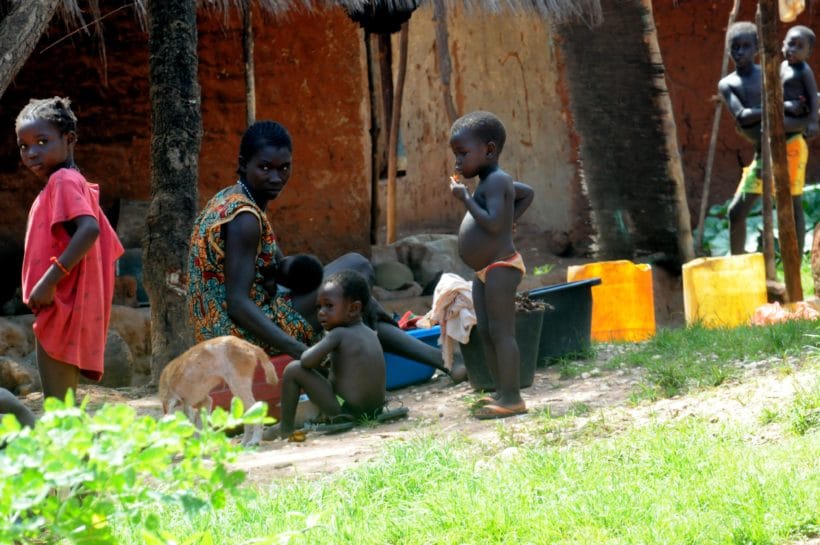
Africa is waging a very real “war on corruption” but now that foreign investment is needed more than ever before, our governments must do more to show the world this is not just a catchy soundbite, writes Edith Nakalema
The pandemic has made itself felt in Africa. A continent-wide dearth of vaccines forced economically damaging lockdowns on what are already some of the poorest countries in the world. Critical industrialization and wealth creation agendas have slowed or ground to a halt. Now, at last, economies are beginning to tentatively reopen, and governments are turning their attention to the question of economic recovery. But the new omicron variant is not the only threat casting a shadow over Africa’s prospects for rebuilding and regrowth.
Corruption, sadly, has long been a byword for doing business on the continent. All too often one hears tell of the “African Discount” where fundraising startups and companies must lower their valuation for no other reason than being based in Africa. Foreign investment is now needed more than ever to drive ambitious economic recovery programmes, but the spectre of corruption turns otherwise interested investors away.
When you consider what Africa has to offer, this is a terrible waste. Our collective population is one of the world’s fastest-growing – projected to double by 2050 – and one of its youngest. The median age is less than 20. We are a continent of innovators and entrepreneurs – my home country of Uganda alone is the birthplace of mobile money, a leader in electric vehicles – including Africa’s first solar-powered bus – and our students are helping to drive the African HealthTech revolution that has flourished during the pandemic.
Just as importantly as new innovations, investment is now needed to inject life back into our industrialisation agenda, slowed by the pandemic. Like many African countries, agriculture dominates our economy – some 60% of Ugandans are employed by the sector. Many of these are smallholder farmers who lack sufficient access to crucial services like finance and banking. Our industrialisation programme, which seeks to shift our economy towards agro-processing while the country rises up the manufacturing value chain is critical therefore to raising millions out of poverty. Without sufficient foreign investment, the progress we made before the pandemic will be lost.
And Progress has been made. Africa has been waging a very real “war on corruption” for decades, but now we must do more to show the world – not to mention our own citizens – this is more than just a catchy soundbite. In Uganda, we have taken pains to do so. First, through policy. In 2010, our Whistleblower’s Act received presidential assent, providing additional means, protections and encouragement for whistleblowers to come forward. According to its latest report, the Inspectorate of Government (IGG) – one of our key anti-corruption agencies – has some 5000 active cases of corruption reported by whistleblowers valued at around UGX 500bn ($141 million).
Second, we must establish the right institutions. The IGG is just one of eight anti-corruption agencies in Uganda, principal among which are IGG and State House Anti-Corruption Unit (SH-ACU). Since its inception in December 2018, the SH-ACU has recovered more than UGX 30 billion ($8.5million), as part of ongoing investigations into corruption in our government and private sector, which are valued at a total of UGX 250 billion ($70.5 million). These efforts – and those of the IGG – were made possible through close collaboration and cooperation between all eight agencies.
Finally, anti-corruption efforts must be shown to be tackling even the most wealthy and politically powerful offenders. With the onus on Uganda’s courts to prove beyond a reasonable doubt that money was obtained through corrupt means, the biggest fish in government were often able to slip away. But just last month the President launched the “Lifestyle Audit Campaign” – an IGG initiative which turns the tables on those the courts find most difficult to prosecute, by requiring suspects who are in public office to account for wealth accumulated which is not commensurate with their known income.
Uganda is not alone in these kinds of initiatives and institutions, which have been growing steadily across the continent. And as they chip away at corruption the world seems to be taking note. The Ugandan delegation to Dubai Expo in October was able to secure some $650 million in investments across a range of sectors in just two weeks. But this accounts for a fraction of the $4 billion we are seeking for our post-covid economic recovery and to fast-track our industrialization agenda.
Throughout the pandemic, Uganda was one of those African countries that chose to err on the side of caution, instigating some of the strictest and longest running lockdowns in Africa. Ugandans are entering 2022 with a newly opened economy and a sense of hope we haven’t enjoyed in nearly two years. But, if we do not maintain the momentum we’ve built in fighting corruption, it risks being all for nothing. Our allies and friends on the continent should take note. It is our children, our innovators, our entrepreneurs, our future wealth creators who will ultimately pay the price. And what a terrible waste of opportunity and talent that would be.
Colonel Edith Nakalema is Head of Uganda’s State House Anti-Corruption Unit based in Kampala